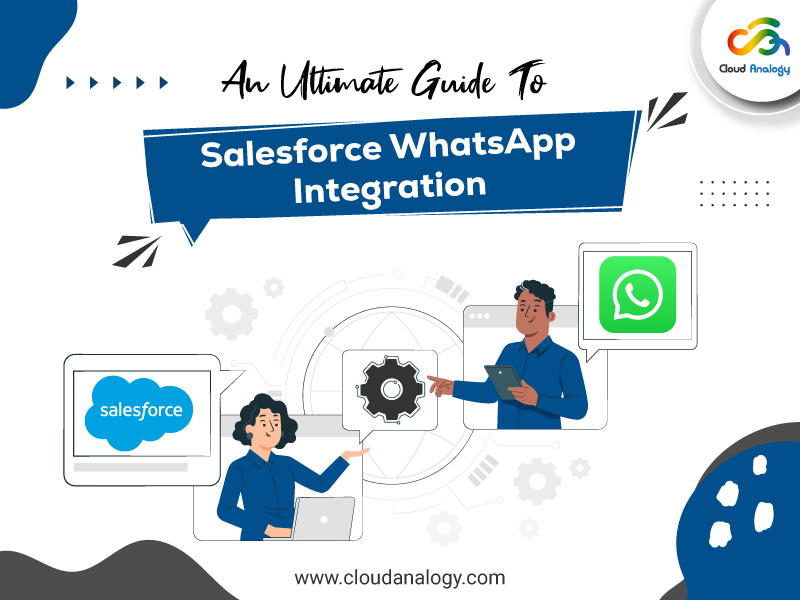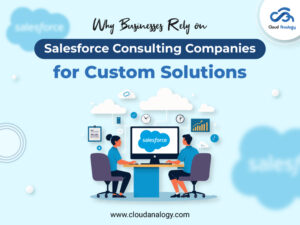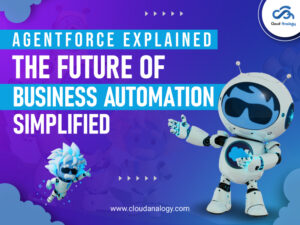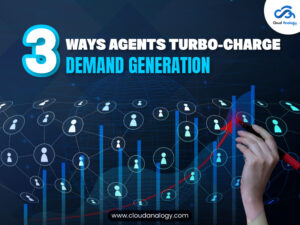Sharing is caring!
Effective communication is the cornerstone of exceptional customer service and impactful marketing. As businesses strive to connect with customers more personally and promptly, leveraging popular messaging platforms becomes essential.
If your business uses Salesforce, integrating it with WhatsApp—one of the most widely used messaging apps globally—offers a strategic advantage in reaching and engaging customers in real time.
This guide will walk you through the benefits, setup process, use cases, and best practices for Salesforce and WhatsApp integration.
Why Integrate WhatsApp with Salesforce?
For businesses in South America, Europe, Africa, and Asia—where WhatsApp is the dominant messaging platform—integrating it with Salesforce can significantly improve customer relationships. It creates a direct communication bridge between brands and their customers, enabling personalized, real-time interactions.
Marketing and service teams can elevate their performance by connecting Salesforce CRM with WhatsApp. The integration enables two-way messaging, ensuring a smoother flow of communication while also capturing and tracking conversations inside Salesforce. This empowers businesses to:
- Simplify sales processes
- Gain deeper customer insights
- Respond in real-time
- Improve operational efficiency
- Build long-term relationships
Benefits of Salesforce WhatsApp Integration
Here are five major advantages of integrating WhatsApp with Salesforce:
- Real-time Communication: Instantly engage customers via their preferred messaging platform.
- Centralized Customer Data: All WhatsApp chats are logged directly into Salesforce records.
- Higher Engagement Rates: Messaging via WhatsApp leads to better open and response rates than email.
- Automation Capabilities: Trigger workflows, send messages, and automate support.
- Rich Media Messaging: Share videos, PDFs, images, and buttons to make communication more interactive.
Transforming Customer Service with WhatsApp & Service Cloud
Salesforce’s Service Cloud integration with WhatsApp brings powerful enhancements to customer support:
- Personalized Conversations: Messages are tailored based on user history and preferences.
- AI Chatbots: Handle FAQs and basic queries automatically, reducing response times.
- Rich Media Support: Send documents, images, or even location pins for clarity.
- Case Management: Auto-create cases in Salesforce from WhatsApp conversations.
- 24/7 Availability: Set up automated messages when your team is offline.
Revolutionizing Marketing with WhatsApp & Marketing Cloud
With Marketing Cloud, WhatsApp becomes a high-conversion marketing tool:
- Hyper-Personalized Campaigns: Send targeted promotions based on behavior and preferences.
- Automated Messaging Journeys: Trigger WhatsApp messages as part of email/SMS journeys.
- Better ROI: WhatsApp marketing often sees higher open rates than traditional emails.
- Engaging Visuals: Add buttons, images, and stickers to boost user interaction.
Prerequisites for Salesforce WhatsApp Integration
Before starting the integration, ensure you have the following:
Salesforce Requirements:
- Enterprise, Unlimited, Performance, or Developer edition
- Digital Engagement, Service Cloud, and Chat User license
- Salesforce Classic or Lightning
WhatsApp Requirements:
- Approved WhatsApp Business Account
- Verified Facebook Business Manager Account
- Authority to configure messaging settings
- Ability to access the WhatsApp Business API
Step-by-Step Salesforce WhatsApp Integration Guide
Step 1: Enable Messaging in Salesforce
- Go to Setup → Messaging Settings → Enable Messaging.
Step 2: Link WhatsApp as a Channel
- Add a new channel and select WhatsApp.
- Enter the registered WhatsApp Business number.
Step 3: Generate Webhook URL
- Salesforce will provide a webhook URL and token.
Step 4: Connect via WhatsApp Business API
- Log in to WhatsApp Business API dashboard.
- Input the webhook URL.
- Test the integration by sending a sample message.
Automation with Triggers & Auto-Responses
Triggers:
- Navigate to Workflow Rules in Salesforce.
- Choose the object (e.g., Lead).
- Set conditions (e.g., lead status changes).
- Add an outbound message for WhatsApp.
Auto-Responses:
- Go to Auto-Response Rules.
- Define rules by region or lead source.
- Add pre-defined message templates.
- Activate the rule for instant replies.
Real-World Use Cases
Here’s how businesses across industries are benefiting:
- Customer Service: Engage and resolve queries instantly.
- Event Notifications: Send automated reminders for webinars, events, or campaigns.
- Order & Delivery Updates: Keep customers informed during each phase of their purchase.
- Sales & Lead Management: Engage new leads and follow up efficiently within Salesforce.
Best Practices for a Successful Integration
- Choose the Right Partner: Work with experts like Cloud Analogy, trusted for delivering top-tier Salesforce integration services globally.
- Define Roles & Permissions: Control access to sensitive information with strict user roles.
- Test Thoroughly Before Launch: Run functional tests to identify interface or data issues.
- Train Your Team: Conduct onboarding and training to ensure proper usage and adoption.
Conclusion
Integrating Salesforce and WhatsApp is more than just a “nice-to-have”—it’s a must for businesses looking to elevate customer communication, marketing performance, and operational efficiency. By combining Salesforce’s powerful CRM capabilities with WhatsApp’s widespread reach, businesses can deliver timely, personalized, and interactive experiences that customers expect.
To help you simplify your Salesforce and WhatsApp integration without the hassle, Cloud Cloud Analogy offers MCUtility, the ultimate all-in-one business messaging app for Salesforce, designed to streamline communication across WhatsApp, Email, and SMS—all from a single interface.
As a trusted Salesforce summit consulting partner, Cloud Analogy offers expert Salesforce consulting services and Salesforce application development services to help you unlock the full potential of MCUtility. Our team ensures a smooth setup, tailored configuration, and ongoing support for maximum impact.
Ready to revolutionize your communication strategy? Book a free demo with Cloud Analogy today and discover how MCUtility can supercharge your Salesforce experience with seamless business messaging.

Suraj Tripathi
Salesforce Consultant | Solutions Engineering Head
"Suraj Tripathi, a certified Salesforce Principal Consultant of repute, is a wonderful mentor and leader. A certified Salesforce Architect and a 7x Salesforce Certified Platform Application Developer by passion and profession, Suraj has rich experience in languages such as Aura, HTML, Angular, Bootstrap, APEX, and JavaScript. With more than five years of expertise in Salesforce Development, Suraj has worked on more than 50+ projects out of which 20+ projects were related to Salesforce Integration, Writing Triggers, Batch classes, VisualForce pages, and Aura Components.Hire the best Salesforce Development Company. Choose certified Salesforce Developers from Cloud Analogy now.










